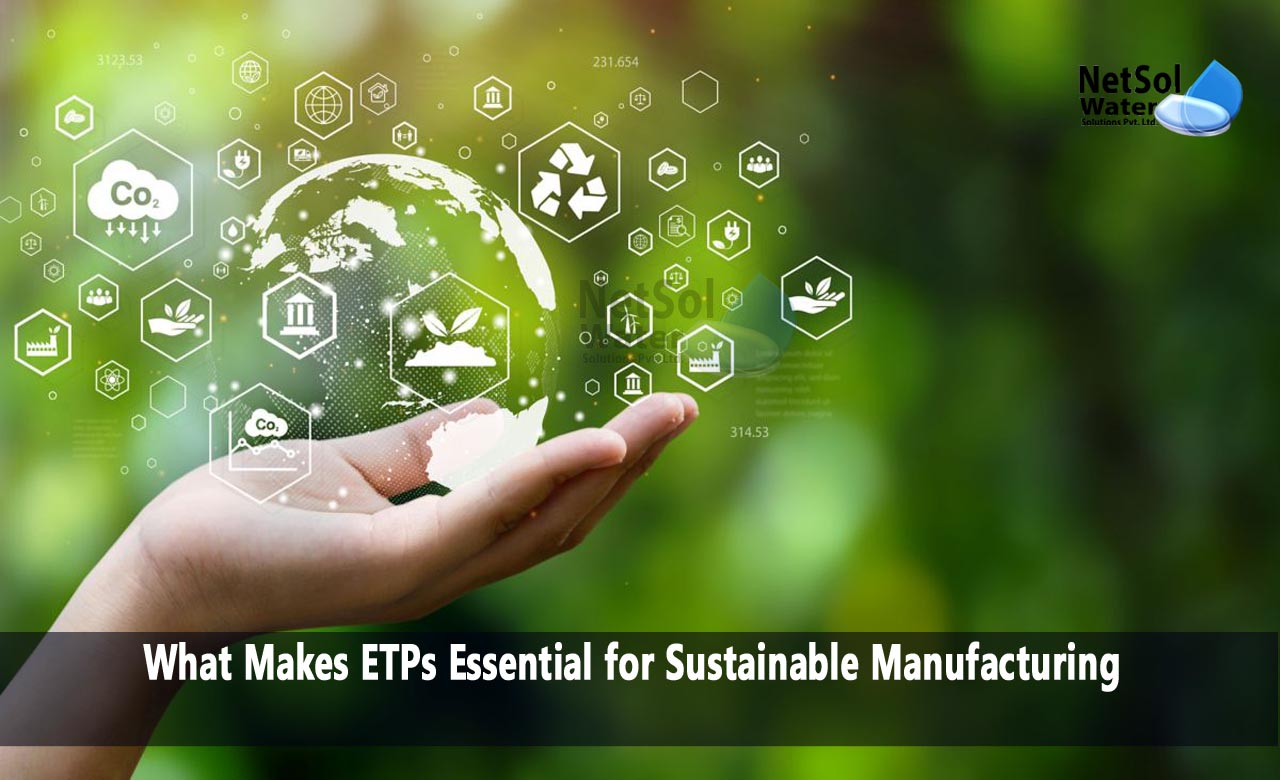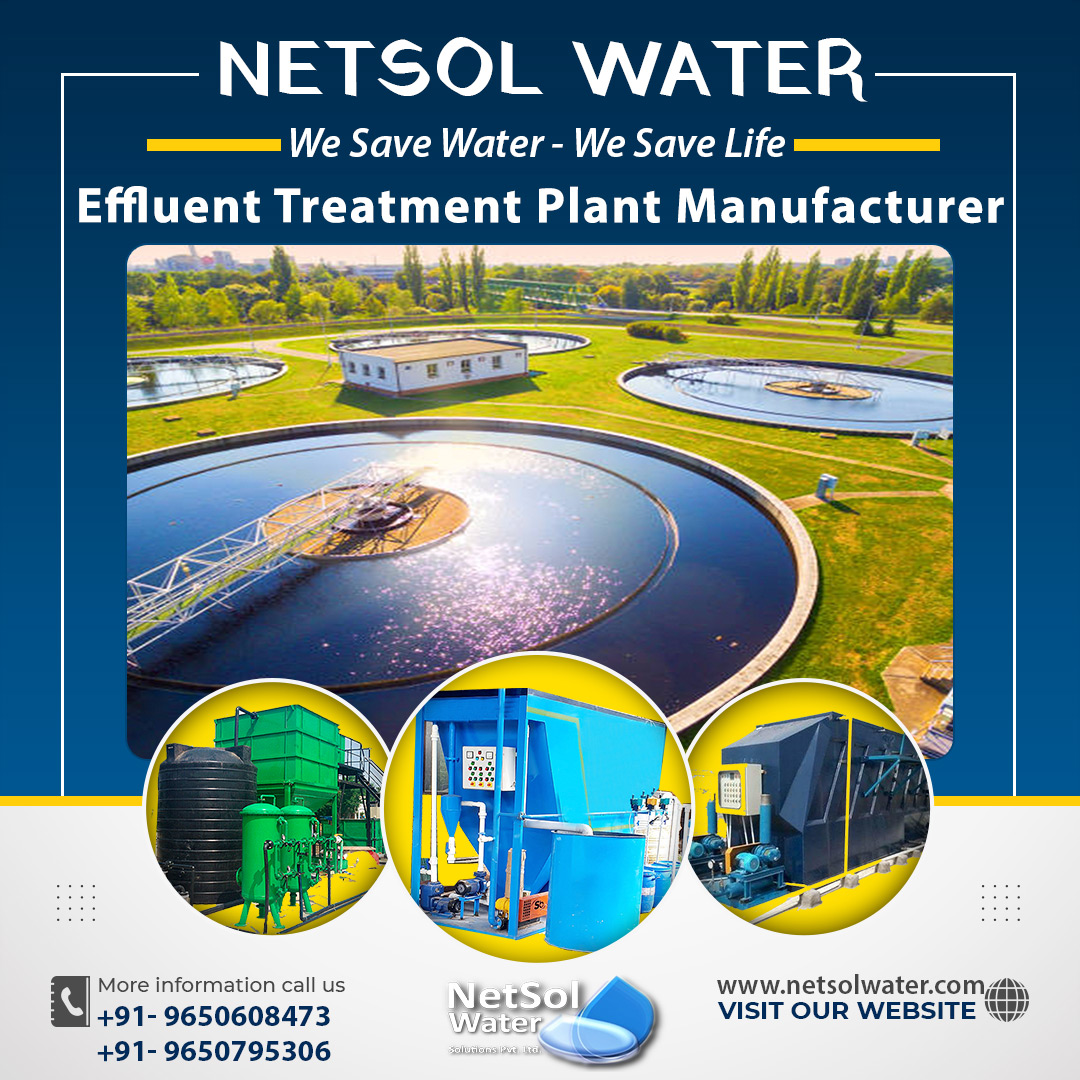What Makes ETPs Essential for Sustainable Manufacturing?
In an era where environmental sustainability is becoming increasingly important, companies are increasingly realizing the need to reduce their environmental imprint. Sustainable manufacturing processes help not just the environment but also the firms themselves by decreasing waste and resource consumption, increasing efficiency, and boosting public image. Effluent Treatment Plants (ETPs) are an important element of the sustainability equation because they clean industrial wastewater before it is discharged into the environment. In this blog, we'll look at why ETPs are important for sustainable manufacturing.
The Role of ETPs in Sustainable Manufacturing
· Environmental Stewardship
One of the major tasks of ETPs sustainable manufacturing is environmental stewardship. Modern effluents contain various foreign substances like heavy metals, natural mixtures, and other dangerous components. These impurities, on the off chance that not treated as expected prior to releasing into the normal streams, can represent a cut off danger not exclusively to the climate however to human wellbeing and oceanic life too. ETPs guarantee that industrial effluents are treated to fulfill severe environmental laws, reducing the negative environmental impact of untreated wastewater.
· Regulatory Compliance
Many nations have enacted stringent environmental standards that companies must follow. These rules establish allowable levels of certain contaminants in wastewater. ETPs are critical in assisting industries in complying with these rules. Failure to achieve these criteria may result in substantial penalties, legal obligations, and reputational harm. Industries achieve compliance, lower the risk of noncompliance fines, and demonstrate their commitment to acceptable environmental practices by treating their wastewater through ETPs.
· Energy Efficiency
ETPs can be energy-intensive to operate, however there is a rising emphasis on making these plants more energy-efficient. Innovative technology and procedures are being used to lower ETPs' carbon footprint. Energy-efficient ETPs assist enterprises in lowering operational expenses while also reducing their total environmental effect.
· Corporate Social Responsibility and Public Image
Consumers and stakeholders are examining corporations' environmental actions more than ever before in an era of increased environmental awareness. ETP-supported sustainable manufacturing enables businesses to improve their public image and demonstrate their commitment to corporate social responsibility. In a competitive market, it may be a key distinction, attracting environmentally concerned consumers and investment.
Challenges and Innovations
While ETPs are important for sustainable manufacturing, they are not without issues. The following are some of the significant issues and creative solutions in the ETP field:
· Effluent Composition Variability: The composition of industrial effluents can vary greatly, making treatment more difficult. ETPs are progressively adopting flexible treatment systems capable of dealing with changes in influent composition.
· Emerging pollutants: In industrial effluents, new pollutants such as pharmaceutical residues and microplastics are emerging. To address these developing difficulties, ETPs are exploring and adopting improved treatment modalities.
· Energy-Efficient Technologies: ETPs' energy usage might result in considerable operational costs. Energy-efficient technology such as anaerobic digestion, solar-powered ETPs, and sophisticated aeration systems are being introduced to reduce energy consumption.
· Education and Public knowledge: It is critical to raise public knowledge about the significance of appropriate wastewater treatment. ETP operators and manufacturers are implementing public education and outreach activities to increase public awareness of the importance of ETPs in sustainable manufacturing.
Conclusion:
ETPs are basic in the advancement of practical assembling. These plants help businesses in conforming to natural guidelines, safeguarding the climate, rationing assets, and working on their public picture. Their significance in lessening modern exercises' ecological impact can't be underlined. The treatment plants will continue to be a groundwork of moral and viable gathering practices as firms continue to make and conform to the difficulties of wastewater treatment. Associations that put assets into ETPs decline their regular impact, yet furthermore position themselves as overall heralds in the advancement to an even more earth reliable future.




